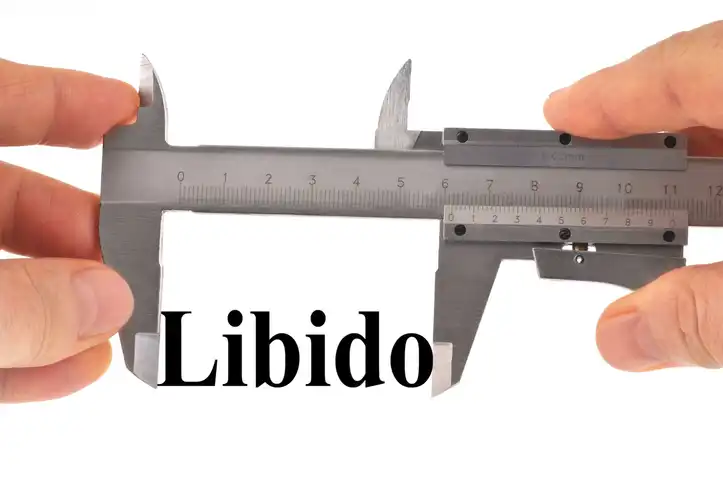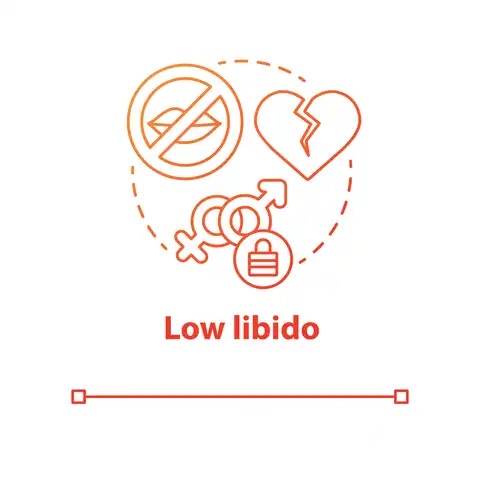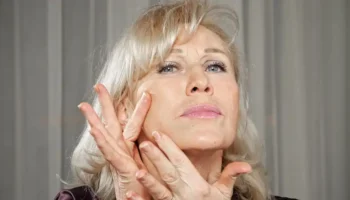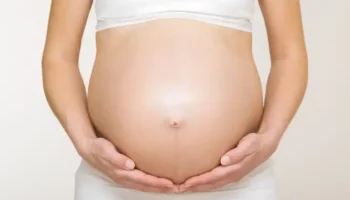Low libido, or a reduced interest in sex, is a common issue many women face as they approach pre-menopause and menopause. It’s an often overlooked topic that can affect intimate relationships, especially when both partners are struggling with sexual desire. If you’re among the many women who have noticed a decline in your sex drive during this life stage, you’re not alone. In fact, a significant number of women experience changes in their libido before and during menopause, which can be influenced by a combination of psychological and physiological factors.
In this article, we’ll dive deep into the reasons behind low libido or a complete lack of sex drive during pre-menopause, examining both the psychological and scientific aspects. We’ll also explore how these changes impact women and their partners and offer practical solutions to help navigate these challenges.

What is Low Libido?
Low libido, or hypoactive sexual desire disorder (HSDD), is when there’s a noticeable decrease or absence of sexual desire that interferes with a woman’s personal life or relationships. It’s not just about physical changes—it’s also about the emotional, mental, and relational impact this decline has on a woman’s overall well-being.
For many women, low libido or no libido at all becomes a concern as they approach pre-menopause and menopause, periods marked by hormonal shifts. However, it’s important to note that low libido can affect women at any stage of life, even in their twenties or thirties. But the hormonal fluctuations experienced during pre-menopause (the years leading up to menopause) and menopause often amplify these issues.

Hormonal Changes: The Science Behind Low Libido
At the core of the low libido issue during pre-menopause is the fluctuation of hormones, particularly estrogen, progesterone, and testosterone. These hormones are directly linked to sexual desire, and as they fluctuate, women can experience a range of symptoms, including a drop in sexual drive.
- Estrogen Decrease: Estrogen plays a key role in sexual arousal and lubrication. As estrogen levels decline in the years leading up to menopause, many women report vaginal dryness, pain during sex, and an overall decrease in sexual pleasure. This can understandably lead to a decline in libido, as the physical experience of sex becomes less enjoyable or even painful.
- Testosterone Levels: While testosterone is often associated with male sexual health, women also produce testosterone, which plays a role in boosting libido. As women age, their testosterone levels naturally decrease, contributing to a reduced sex drive.
- Progesterone Imbalance: Progesterone, another hormone that fluctuates during pre-menopause, can also impact libido. As progesterone levels drop, it can affect a woman’s mood and energy levels, leading to feelings of fatigue or stress that might take the joy out of sexual activity.
- Cortisol and Stress: With hormonal changes, stress levels often rise. High cortisol levels (the stress hormone) can negatively impact sex drive, creating a vicious cycle where anxiety and stress about intimacy make it harder to enjoy or even want sex.
Psychological Factors: How Emotions and Stress Influence Libido
The psychological side of libido decline can often be just as influential, if not more, than the physical causes. Several factors contribute to the emotional and mental blockages that prevent women from wanting sex:
- Body Image and Aging: As women approach menopause, they may notice changes in their body, such as weight gain, changes in skin texture, or the appearance of wrinkles. These natural signs of aging can make some women feel less confident or less attractive, which can impact their desire for intimacy. In fact, many women experience a decrease in libido because they feel less sexy or attractive.
- Emotional Fatigue: The years leading up to menopause can be stressful for many women, whether they’re juggling family responsibilities, career pressures, or other life changes. Emotional fatigue and the toll of managing multiple roles can leave little mental or emotional energy for sex, even when the relationship is strong.
- Relationship Strain: Libido is often a reflection of the emotional connection in a relationship. If there are underlying issues between partners, whether it’s communication problems, unresolved conflicts, or dissatisfaction in the relationship, it can negatively affect sexual desire. Many couples report that when both partners experience low libido, the relationship can suffer from increased distance and misunderstandings.
- Depression and Anxiety: Depression and anxiety, which can be exacerbated during pre-menopause, can also lead to a loss of interest in sex. The mental health struggles that women face can overshadow physical desire, and many women in this stage report feeling “too tired” or “too stressed” to engage in intimacy.

How Low Libido Affects Men and Relationships
While the focus here is on women, it’s important to acknowledge how low libido during pre-menopause and menopause can also affect male partners. In many cases, men may experience similar issues with libido due to their own aging processes and hormonal fluctuations. When both partners are facing a decrease in sexual desire, it can create a disconnect in the relationship.
This situation can often lead to feelings of frustration, confusion, or even resentment. Men may feel rejected or emotionally disconnected from their partners, and women might feel misunderstood or pressured. Communication between partners is essential to navigating these changes together, ensuring that both individuals feel supported in their emotional and sexual needs.
Solutions: How to Reignite Your Libido
There’s no one-size-fits-all solution for addressing low libido during pre-menopause or menopause, but there are several approaches that can help reignite sexual desire and improve intimacy.
- Hormone Replacement Therapy (HRT): For some women, hormone replacement therapy (HRT) can help balance the fluctuating hormones responsible for a drop in libido. HRT can help alleviate physical symptoms like vaginal dryness and discomfort, as well as address hormonal imbalances that affect sexual desire.
- Therapy and Counseling: Psychological factors can significantly affect libido, and therapy can help. Couples counseling, sex therapy, or even individual therapy can address emotional issues and relationship strain. It can also help women address body image concerns or mental health struggles that may be contributing to a lack of sexual interest.
- Stress Reduction: Finding ways to manage stress, such as through mindfulness, meditation, or regular exercise, can improve overall well-being and help improve libido. Physical activity, in particular, has been shown to enhance mood, increase energy levels, and promote better body image.
- Open Communication with Your Partner: One of the most important steps to addressing low libido is talking openly and honestly with your partner. Share your feelings, concerns, and experiences. By doing so, you can both work together to understand each other’s needs and find ways to reconnect emotionally and physically.
- Lubrication and Sensual Alternatives: If vaginal dryness is an issue, using lubricants or exploring different forms of intimacy can help make sex more comfortable and enjoyable. This may also involve discovering new ways of being intimate that don’t solely rely on penetrative sex.
Conclusion: Embracing the Changes
Low libido during pre-menopause and menopause is a complex issue, but it is far from a hopeless one. Both physical and psychological factors play a significant role in changes to sexual desire, and these changes can be addressed through a combination of medical, emotional, and relational approaches.
It’s essential to recognize that these fluctuations are a natural part of aging, and rather than being something to fear or feel ashamed of, they should be embraced as an opportunity for growth and connection in your relationship. Through communication, self-care, and professional guidance, many women and their partners can navigate this challenging phase with greater understanding and renewed intimacy.







